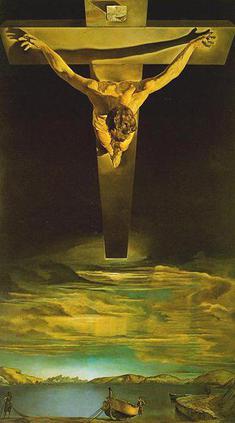I am so distant from the hope of myself,
Mary Oliver, When I am among the trees
in which I have goodness, and discernment…
Forgiveness is not a contract. We do not forgive because someone has said sorry or because reparation has been exacted. The Crucifixion is not a cosmic trade-off. God does not need to forgive because, like the prodigal father, S/He never felt slighted in the first place. Maybe your heart opens when someone says sorry and makes reparation for a wrong. You find yourself able to forgive. Forgiveness that demands an apology, that requires restitution, is not forgiveness but a defence against hurt. For forgiveness is fundamentally a free act of understanding and love.
I am interested in the word “for”, as in, “Jesus died for our sins.”
I do not believe for one moment that the Crucifixion is the performance of a cosmic contract to satisfy a deity’s need for justice, like a theocratic form of Newton’s Third Law of Motion. There is a deeper, older magic than reparative justice.
I think the “for” is that we are shown what we do to ourselves, to each other, to the world, to God, and daily. We are shown our sin in this “for”. We kill that which is most precious. We stifle our dreams. We cannot bear the beams of love. We cannot believe that we are loved beyond measure. We know we will never be good enough. We know we don’t deserve it.
But love and forgiveness are not to be deserved. They are simply the case. The love that has no need to forgive – not because it cannot be hurt but because, undefended, it never considers revenge – is in the deep fabric of the Universe. A god might demand reprisals but The God has no need. How could it be otherwise?
If Jesus’ “for” is to show us what we are like, it is also to show us what God is like.
The Resurrection shows that God is not one of the gods, shows that we are unable to make God turn from us, that there is nothing we can do that would persuade God to disinherit us, shows that we are forgiven, shows that we are loved, shows that God is wholly other than we thought.
30 years ago I underwent the Spiritual Exercises of St Ignatius as a 30-day retreat. It was a good time. I had such hope. During the Eucharist one day the homilist, Patrick Purnell SJ, suggested we would still be the same, grotty (Patrick’s word) people after we had finished. I remember nothing else of what he said. I felt outraged, betrayed even. I didn’t yet know.
After the Resurrection, we are still the same, grotty people. Salvation has not made us good. Jesus’ death has not wiped away our shame. Instead, Jesus has saved us by showing, in His body, that nothing, nothing our guilt and shame can do, can occlude the love and presence of God.
[St James’s, Piccadilly, Good Friday]


So helpful Julian. Thank you for writing this – ‘for’ us, to help us glimpse a little more of the depths of love open to us in God. The church can be so trite about Good Friday and Easter Day…
Thank you, Paul.
‘the same grotty people’……I like this! Its somehow an acceptance that we are continually loved despite not becoming superman! ‘the same grotty people…..’:) 🙂
Thank you, Janet. I’m glad it made you smile.